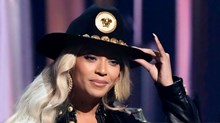This was supposed to be the year the Democrats got religion. Too bad somebody forgot to tell the pollsters. One of the big untold stories of the Iowa caucus is that only Republicans were asked about their religious affiliation.
The problem isn't just that we don't know how many Iowan evangelicals voted for the various Democrats (it would be interesting to see, for example, if Edwards scored as well among evangelicals as he did among conservatives). The problem is that we don't know whether Democrats as a whole have succeeded in attracting more evangelical voters. (Usually somewhere between one quarter and one third of evangelicals vote Democratic.) I'm told we'll see some Iowa caucus poll results soon (not from Edison Media Research, the company that does most of these entrance and exit polls) that may shine some light on the religion questions.
The good news is that Edison Media Research has repented, and today's New Hampshire exit polls (via CNN [Rep | Dem] and MSNBC [Rep | Dem] )had many religion questions for both Republicans and Democrats.
Clinton, it seems, took the moderately religious (those who attend church monthly or a few times a year), while Obama took the devout (weekly attenders) and the nonreligious (those who never attend church). Roman Catholics (the largest religious group among New Hampshire Democrats, with 36% of voters in that primary), overwhelmingly chose Clinton (43%) over Obama (28%). Those who said they had no religion supported Obama (47%) over Clinton (28%), and that formed a remarkable 22 percent of Democratic voters.
Unfortunately, voters in the Democratic primary were not asked if they consider themselves evangelical or born again.
Republicans were, and 22 percent said they were evangelical or born again. One third voted for Huckabee, 30 percent voted for McCain, and 24 percent supported Romney. But McCain had a very strong showing among among those who said they were not evangelical: 38 percent. (Romney had 32 percent, Huckabee 7 percent).
It's helpful to compare the evangelical numbers with the political identification numbers. As usual, the evangelical Republican vote was not synonymous with the "very conservative" Republican vote. One of five voters in the Republican primary identified themselves as very conservative, and they went overwhelmingly to Romney: 42 percent (compared to 21 percent for Huckabee and 19 percent for McCain). The Arizona senator scored highest in all other political identification categories.
Anyone care to interpret McCain's winning the "candidate's religious views matter a great deal" vote? Can voters even describe McCain's religious views?

Support Our Work
Subscribe to CT for less than $4.25/month


















